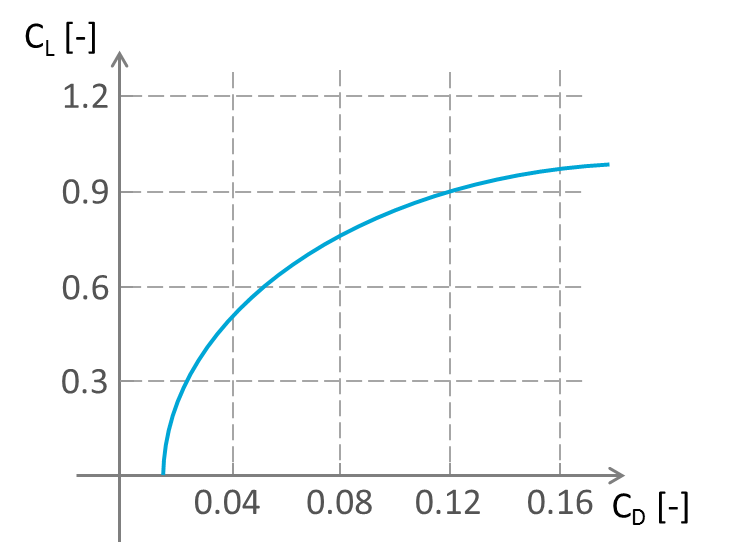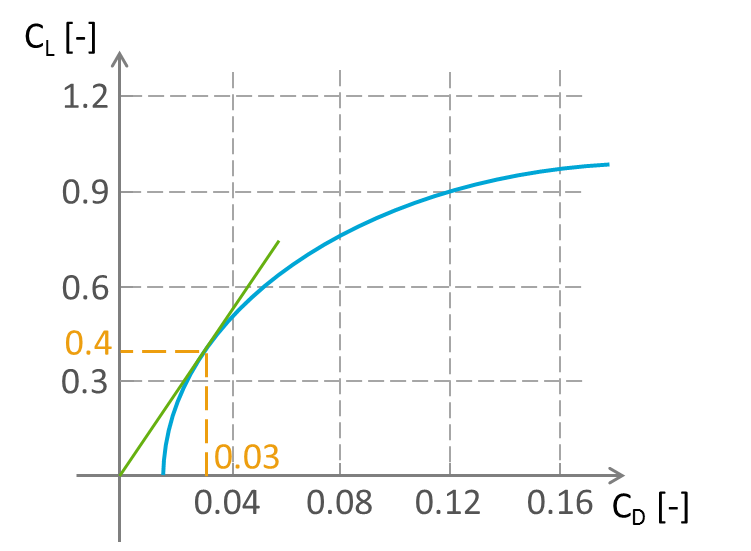Glide ratio
For this aircraft, determine the maximum glide ratio.Answer
From the lecture on drag you should know that the maximum glide ratio (or the maximum lift over drag ratio) can be determined from such as diagram by drawing the steepest tangent to the curve (from the origin). See the figure below. The point where this tangent touches the lift-drag polar corresponds to the flight condition with the maximum glide ratio.
We see that at the specified point the lift coefficient is roughly 0.4, while the drag coefficient is approximately 0.03. Dividing the two, we get E =13.3.
Aircraft drag
Suppose that the lift-drag polar of the previous problem belongs to a 32,000 kilogram aircraft with an average wing chord of 3.5 metres and a wingspan of 30 metres. At a certain moment this aircraft flies in cruise at a speed of 300 ft/s, with an air density of 1.0 kilogram per cubic metre. For this flight condition, determine the aircraft drag (in Newton).

